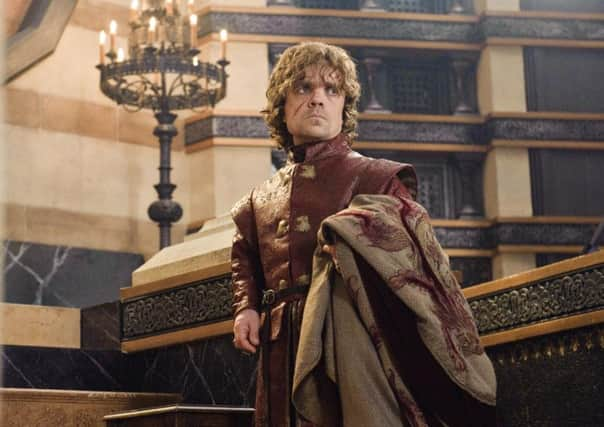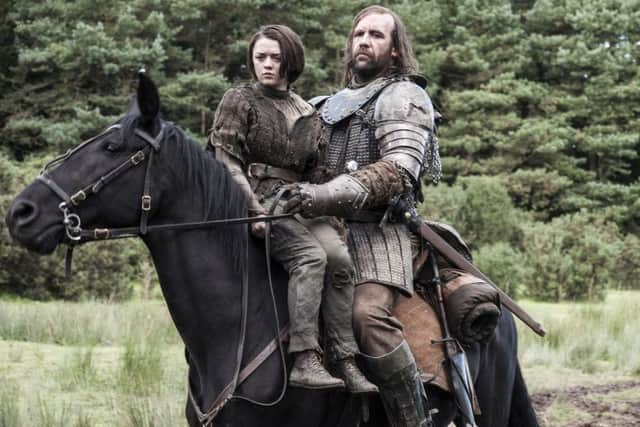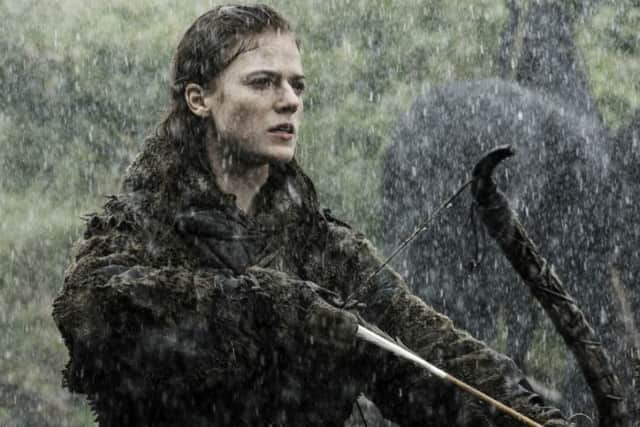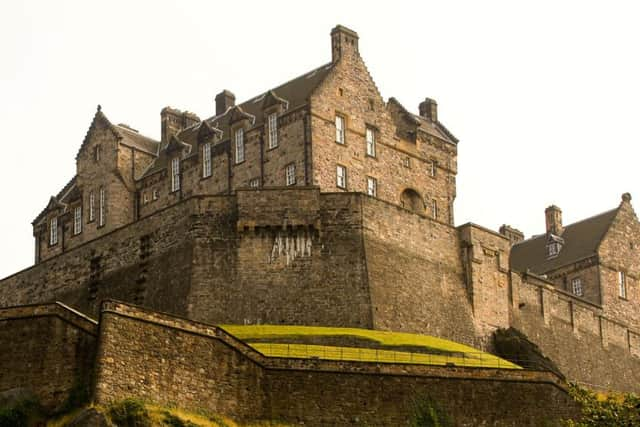How Scottish history has inspired Game of Thrones


A leading writer and historian who has immersed himself in the best-selling books and award-winning TV series is convinced Scotland’s past has helped shape the entire “Game of Thrones universe.”
David Weinczok is being brought in by the National Trust for Scotland to lift the lid on the parallels between what has unfolded in Games of Thrones, which was initially filmed at Doune Castle in Perthshire, and the pages of Scotland’s history books.
Advertisement
Hide AdThese include everything from the name of the fantasy world of Westeros, which Martin is said to have created after visiting Wester Ross in the north-west Highlands, to key geographical elements like The Wall, the Iron Islands and The Twins castle.


The Canada-born “castle hunter” will be recalling real-life power plays and bloody conflicts spanning some 2000 years when he gives a talk at 17th century Gladstone’s Land building on Edinburgh’s Royal Mile on Saturday.
The former battlemaster at NTS’s new visitor centre at Bannockburn will also be exploring the links between Game of Thrones and Scotland’s ancient Gaelic culture and the rule of the Lords of the Isles.
Mr Weinczok said: “There are a lot of historical and thematic connections between Scotland and Game of Thrones. If you look at the driving forces and dynamics behind the world of Westeros you will find the very same in Scottish history. A lot of the pivotal events in Game of Thrones are direct echoes of events that happened here.
“The Red Wedding, one of the most shocking sequences from the Game of Thrones universe, has a direct parallel with the Black Dinner at Edinburgh Castle in 1440.


“King James II was still a 16-year-old boy when he invited the Earl of Douglas there for dinner because his advisers were so jealous of his power. He was wined and dined until the end of the meal when the head of a black boar was brought out on a silver platter. The Earl was taken outside, strung up and killed.
Advertisement
Hide Ad“George RR Martin has actually said that that incident, along with the Massacre of Glencoe, were inspired him to write the Red Wedding sequence.
“One of the pre-dominant elements in Game of Thrones is this idea of the north beyond The Wall and the unimaginable wilds that lie beyond it. There is a real parallel in Scottish history with the Antonine Wall, which was really the final frontier.
Advertisement
Hide Ad“Game of Thrones also has The Twins, a fortress guarding a bridge going over a major river, which effectively cuts the land in half - in precisely the same way that Stirling Bridge cut off the Lowlands from the Highlands in Scotland. It is a make or break factor in Westeros, just as it was in Scotland.


“The Iron Islands in Game of Thrones are home to a culture which is very similar to the distinct Norse Gaelic culture which grew up in the Western Isles.”
Games of Thrones has been credited with transforming the fortunes of Northern Ireland’s screen sector after being chosen by American entertainment giants HBO to be the base for the production.
Industry experts told the Scottish Parliament last year that, despite part of the pilot for the show being filmed at Doune Castle, Game of Thrones was lured to Northern Ireland because it had better infrastructure in place.
A former warehouse complex in Cumbernauld was later converted to become home to another fantasy series, Outland, which has been credited with raising the value of the Scotland’s film and TV industry to a record £45 million.


Mr Weinczok added: “It is a bit of a shame that Game of Thrones hasn’t really been filmed here given all its connections with Scotland.
Advertisement
Hide Ad“There’s been a lot of talk about creating a film studio in Scotland - that could certainly help in future if it was to happen. I’d certainly be all for it.”
Tickets for David Weinczok’s talk at Gladstone’s Land, which is only open to Game of Thrones fans ages 16 and over, can be booked via www.nts.org.uk